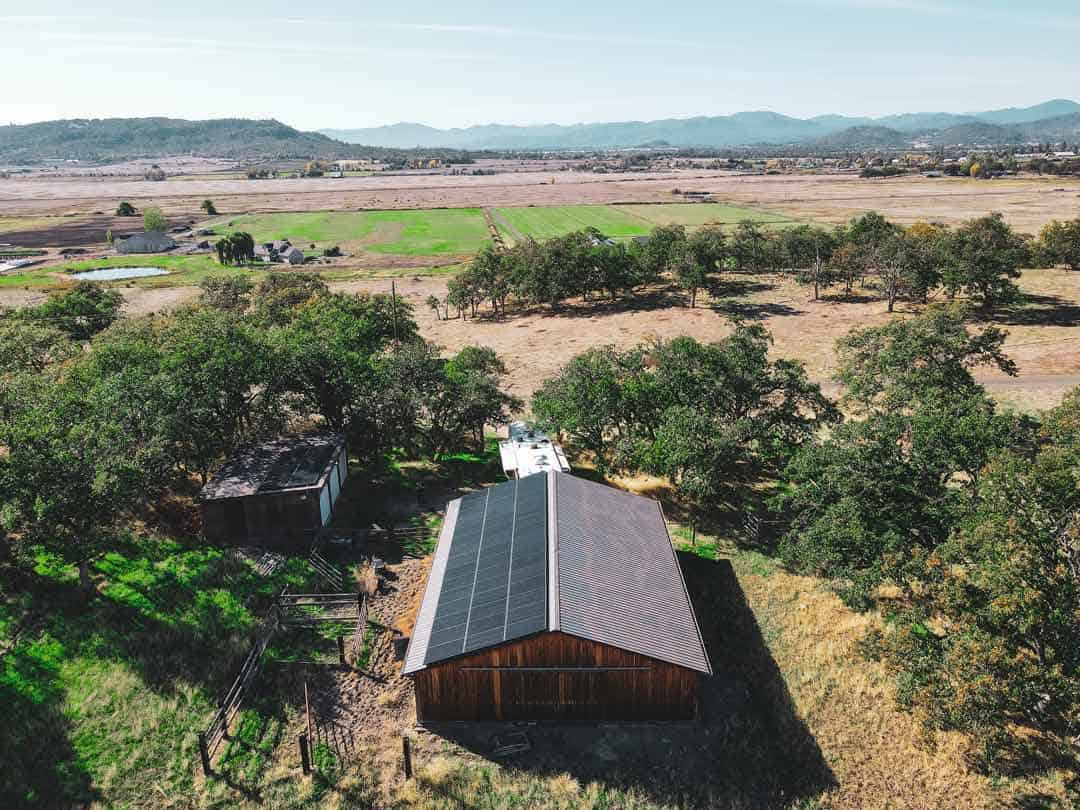Did you know that homeowners in Oregon can save over $1,000 every year on energy costs?
It’s not a scam. Those savings are possible thanks to solar and net metering in Oregon.
When you go solar in Oregon, you’re able to save even more by claiming tax incentives, and thanks to net metering being guaranteed for homeowners across the state. Unfortunately, as more of the state moves towards clean, solar energy and savings, homeowners who wait to go solar might find themselves out of luck.
Why? Because of large scale solar projects impeding individual homeowners ability to access net metering and save more.
Keep reading to learn more about this issue, and find out what you can do to make sure you get all the savings solar can provide.
How Does Net Metering in Oregon Work
First, let’s start by a quick explanation of what net metering is.
When a homeowner goes solar and keeps their system grid-tied, they’re able to use the electrical grid in their community as a sort of battery.
When a solar energy system produces more energy than a home can use at a given moment, the extra energy is sent back onto the grid. On the way it’s tracked by a net meter that was installed when the solar panels were.
That net meter tells the power company how much energy that home has provided back to the grid in kilowatts.
The homeowner gets a credit on their account with the power company, and they have a cushion of energy to draw on during periods of the year where solar won’t be able to produce as much energy due to less sun.
In Oregon, the ability to connect home solar to the grid and receive those net metering credits and savings is guaranteed by a state statute.
Oregon Net Metering Under Threat
Unlike California where the power companies are actively trying to remove homeowners’ access to net metering for solar, Oregon’s net metering statute seems pretty safe currently.
But homeowners are facing an unexpected issue with saving with solar and net metering.
Because of delayed upgrades to the grid across much of Oregon coupled with large scale solar farms, individual homeowners are finding themselves locked out of going solar for clean energy and cost savings.
Across Oregon, corporations and private companies are buying up agricultural and residential land to install large scale solar farms. While some of these farms may turn into an opportunity for community solar, that electricity may also be sold to Meta or Google for their their data centers.
When these large scale solar farms connect into the local grid, that often puts the grid at capacity in that area. Which means homeowners won’t have the option to connect to their community’s grid for their small-scale net metering.
Why Net Metering Matters for Homeowners with Solar
So what’s the big deal? Homeowners don’t have to have net metering to go solar, right?
Well, yes and no. If a homeowner is able to invest in a battery system alongside their solar energy system, they have another option. But solar panels today are regularly efficient enough that they will produce more power than your home can use.
That excess power has to have someplace to go.
Because battery systems for solar are generally at least half the cost of the system themselves, that added expense can put residential solar out of reach for homeowners. A solar energy system that cost $25,000 could jump up to $37,500 with a battery system based on that cost.
If you’re paying $125/month towards your system, a homeowner who had to go with a battery system because they couldn’t access net metering would go from paying off their system in 16 years, to paying it off in 25 years.
Net metering would have saved that homeowner years and thousands of dollars in costs.
Without access to net metering, home solar in Oregon goes from a real possibility to a pipe dream for many homeowners.
Save with Solar and Net Metering Today
As more large scale solar projects are being built around Oregon, the time to consider investing in home solar is now!
You can find out if your roof qualifies for solar with $0 down from Purelight Power in just 30 seconds.
Don’t miss out on your chance for savings with clean, solar energy.





